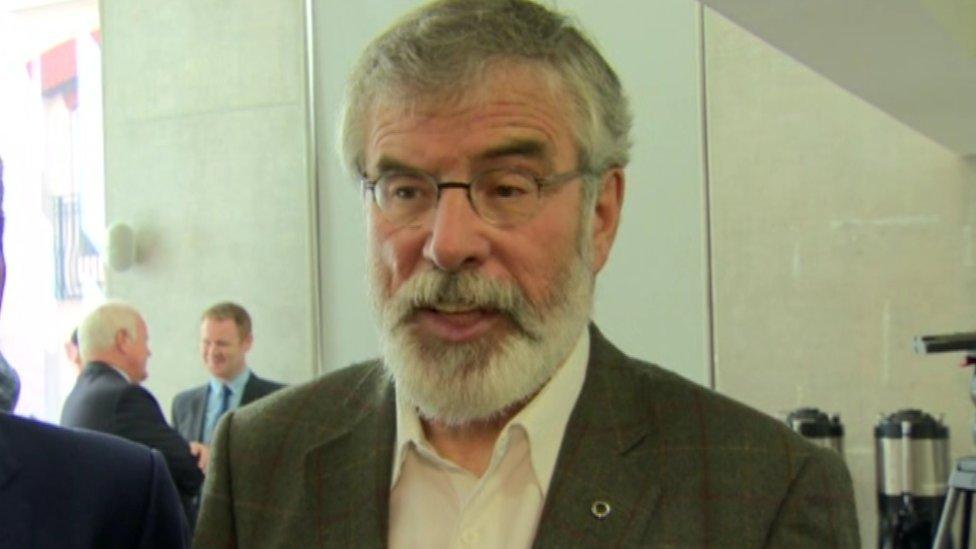Stormont deadlock: Sinn Féin rejects DUP proposal
- Published
- comments
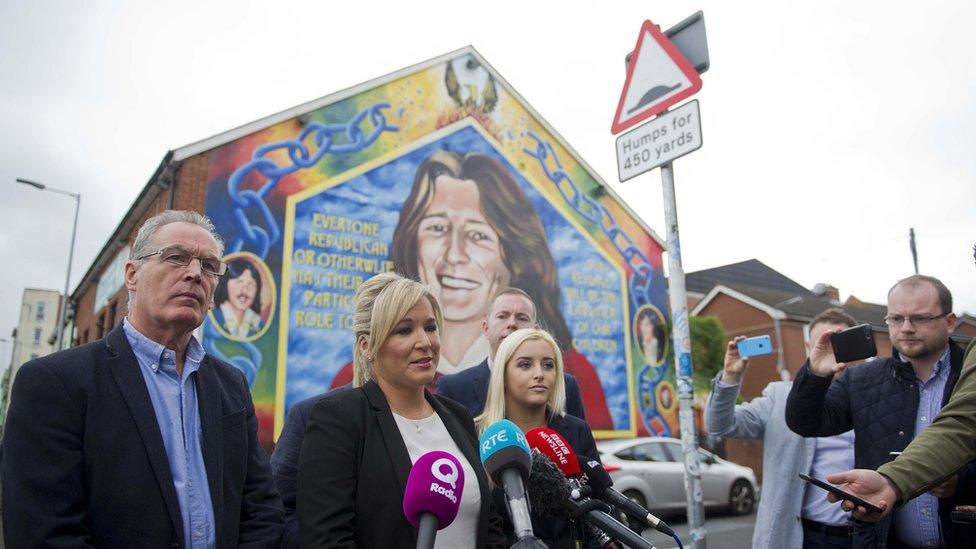
Sinn Féin said they are committed to making the institutions work.
Sinn Féin has rejected a DUP proposal for an an immediate restoration of the assembly in Northern Ireland along with a parallel, time-limited process to deal with culture and language.
The DUP leader, Arlene Foster, made the proposal at a DUP meeting in Belfast on Thursday night.
She described it as a "common-sense solution" to the political deadlock.
However, Sinn Féin said the DUP had not addressed the cause of Stormont's collapse.
In June, talks between parties failed to restore a power-sharing executive.
Speaking at a press conference on Friday, Sinn Féin's leader at Stormont, Michelle O'Neill said: "The DUP have failed to embrace principles of power sharing, they have failed to embrace the principles at the heart of the Good Friday Agreement, of equality, of mutual respect and of parity of esteem.
"They have acted disrespectfully towards Irish identity and Irish culture and they have failed to deliver people their rights, whether that be marriage rights, language rights, economic rights or cultural rights.

Analysis: Enda McClafferty, BBC News NI political correspondent
It was billed as a significant speech by the DUP leader - a potential game changer that could break the political deadlock.
But within minutes of Arlene Foster going public with her "common-sense solution", her one-time political partners in Sinn Féin quickly torpedoed it.
As Mrs Foster was leaving the stage, the Sinn Féin press machine was moving into overdrive.
Read more here.

"The issue of a parallel process has been discussed and disregarded throughout the course of all of the negotiations which we have had to date.
"It was an offer they knew would be rejected and it is certainly not a new offer," she added.
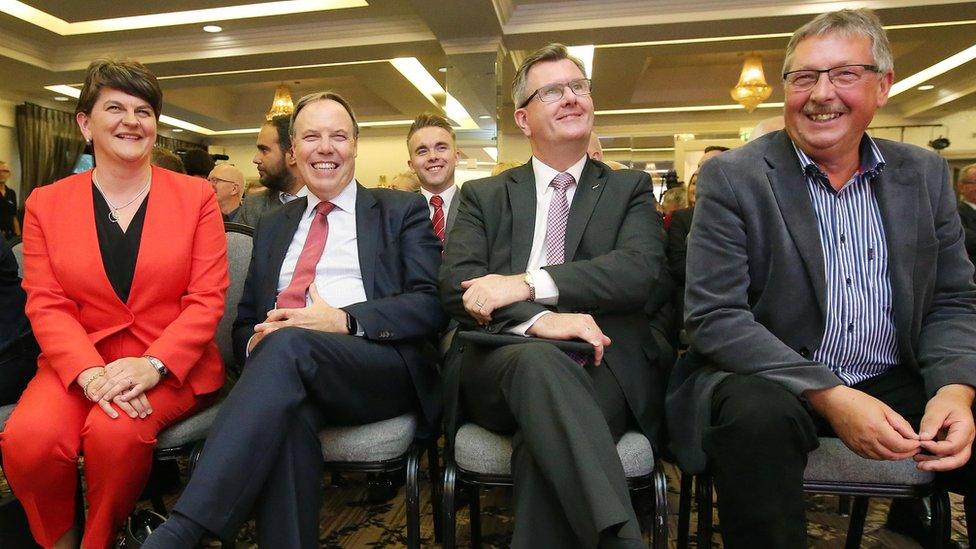
Arlene Foster addressed a DUP meeting in Belfast on Thursday night
Addressing her party, Mrs Foster said if the parties fail to reach an agreement, then direct rule from London would be the only option.
Mrs Foster added that more talks would be a "waste of time unless there is some new thinking".
She said that the executive should be restored immediately so ministers can deal with ongoing pressures in areas such as health and education.
At the same time, she said, parties should "agree to bring forward legislation to address culture and language issues in Northern Ireland within a time-limited period to be agreed".
Mrs Foster acknowledged the need to deal with culture and language, but those matters "should not have a greater priority than health or education or the economy".
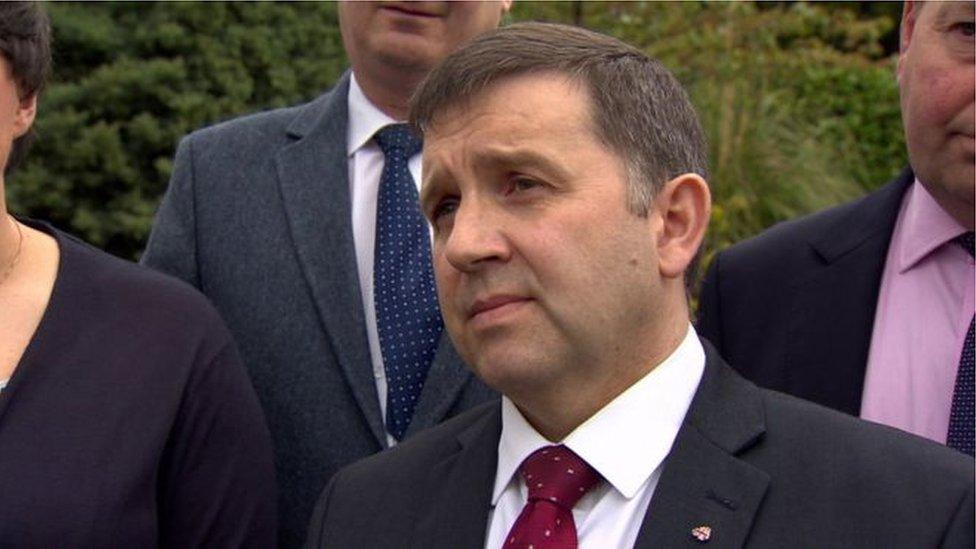
UUP leader Robin Swann said the speed of Sinn Fein`s rejection of Mrs Foster's suggestion reflected Gerry Adams' intransigence
"We have nothing to fear from the Irish language nor is it any threat to the Union. However what we cannot and will not do is simply agree to one-sided demands," she said.
Mrs Foster also accused Sinn Féin of building "a barrier to the return of Stormont".
Ulster Unionist leader Robin Swann acknowledged the DUP's proposal to restore the executive, but said that in light of Sinn Féin's "intransigence", other options should be explored.
"If Sinn Féin and the DUP can no longer work together then other alternatives should be explored to ensure that Northern Ireland is governed by Northern Ireland politicians," he said.
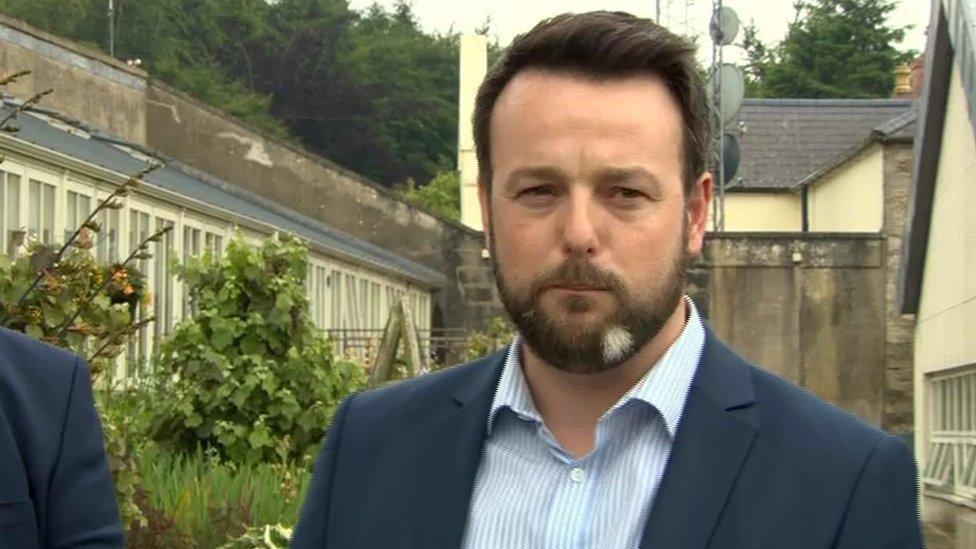
SDLP leader Colum said Arlene Foster had missed an opportunity to show 'real leadership'
SDLP leader Colum Eastwood said the DUP proposition was a can-kicking exercise.
"Anything can be agreed in a time-limited parallel process can be agreed now.," he said. "Time is not the issue, a critical lack of political generosity is."
The Alliance party's deputy leader described the ongoing deadlock as a "complete and utter mess".
Stephen Farry told BBC's Good Morning Ulster programme: "The DUP need to show a much stronger sense of realism about the depth of reasons as to why we're in the current crisis.
"At the same time, Sinn Féin needs to show a little bit more in terms of flexibility and the speed of their rejection was telling of their attitude towards the talks."
He also told the programme it seemed "inevitable" there would be some sort of intervention from the UK government.
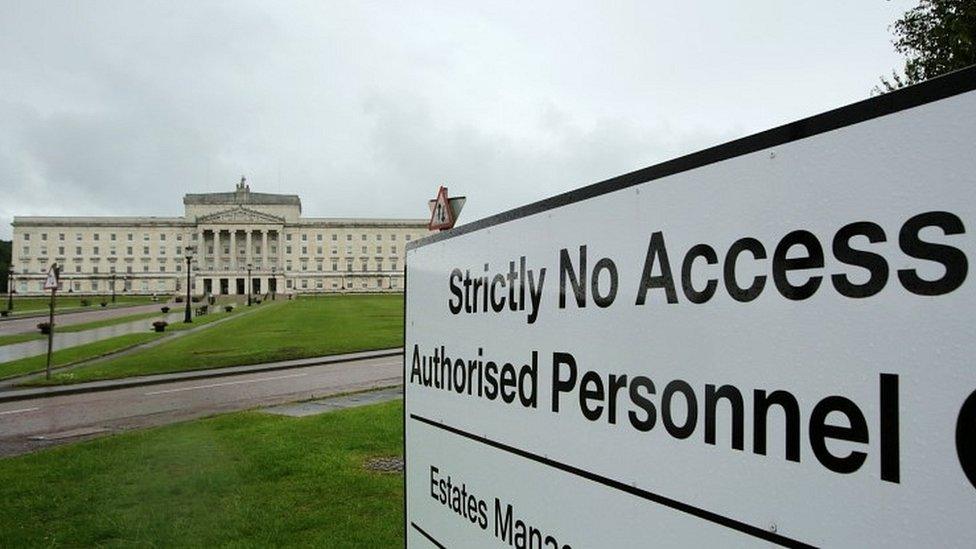
Sinn Fein leader Gerry Adams says that without a stand-alone Irish Language Act, there will be no new assembly
Northern Ireland has been without a functioning devolved government since January, when the coalition led by the two biggest parties, the DUP and Sinn Féin, collapsed over a botched green energy scheme.
The late deputy first minister, Sinn Féin's Martin McGuinness, stood down in protest against the DUP's handling of an investigation into the scandal, in a move that triggered a snap election in March.
One of the major sticking points in talks to restore devolved government has been Sinn Féin's demand for an Irish Language Act.
Earlier this week, Sinn Féin president Gerry Adams said there would be no Northern Ireland Assembly without an Irish Language Act.
- Published1 September 2017
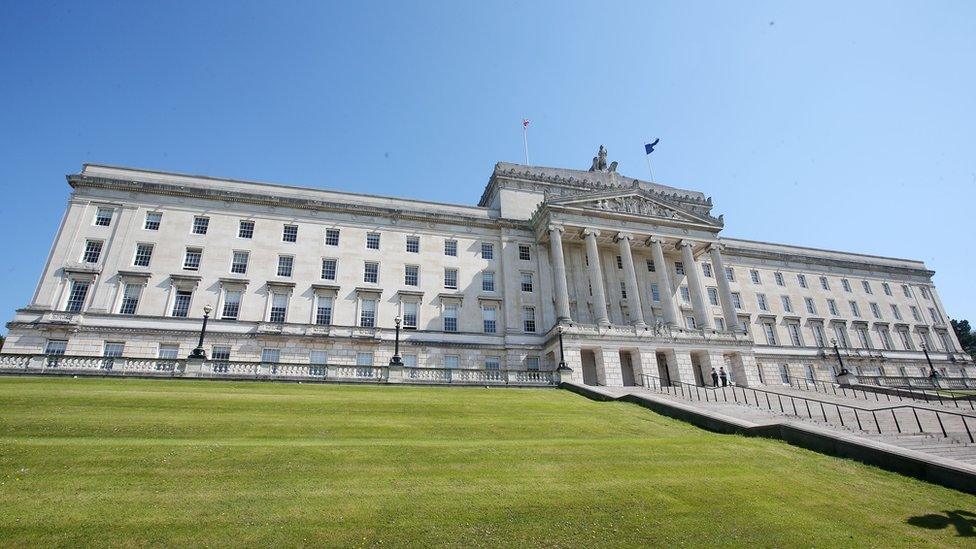
- Published1 September 2017
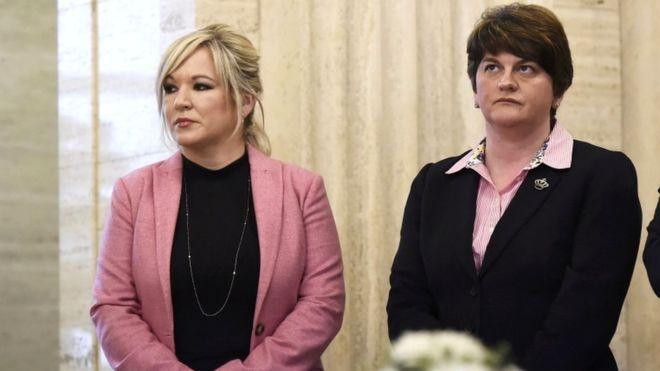
- Published4 July 2017

- Published27 June 2017
- Published30 August 2017
